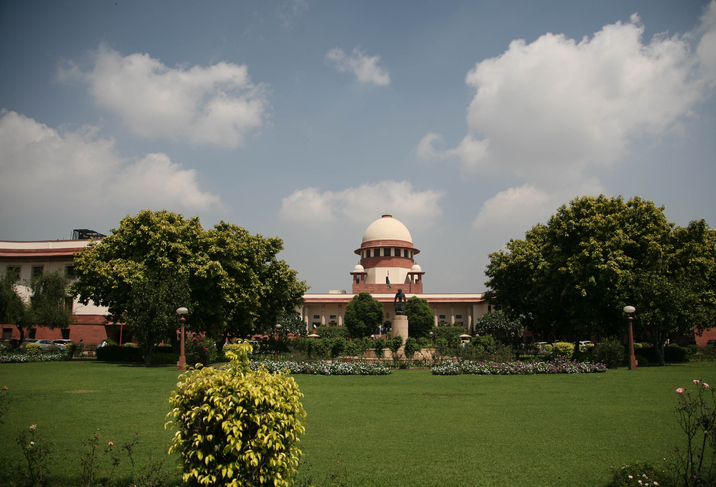
- Opinion
- 4 Dec 2020
- 1 min read
The new anti-conversion requirements intrude into a private zone of both intimacy and faith
On provisions that criminalise conversions done 'by marriage' and invalidate the accompanying marriages
This opinion was published in The Economic Times on December 04, 2020.
Filed Under
About the Authors

Arghya is the Founder and Research Director at Vidhi. His areas of specialisation are constitutional law and regulation of the digital economy. He has served on a number of government committees including the B.N. Srikrishna-led committee of experts on a data protection framework for India. Arghya has a number of academic publications on the Supreme Court and the Constitution in leading law journals such as Law Quarterly Review and Public Law. He is also a columnist at The Telegraph and The Times of India. He has most recently authored a book “Independence and Accountability of the Indian Higher Judiciary” (Cambridge, 2019) which builds on his doctoral work at Oxford University. Prior to founding Vidhi, he was at Oxford as a Lecturer in Administrative Law at Pembroke College.

Lalit is a graduate of the Gujarat National Law University and has been working at the Vidhi Centre for Legal Policy since 2017. Prior to joining Vidhi, he worked briefly as a Consultant with the 21st Law Commission of India. At Vidhi, he has worked in the broad areas of law and technology, regulation and constitutional law, covering subjects such as data protection, higher education, election law, fiscal federalism, and state governors. As a 2020 Samvidhaan Fellow, he conducted interdisciplinary research into the right to equality, including from the perspective of law & economics. He worked in Vidhi's constitutional law team, Charkha, engaging with contemporary issues such as the right against discrimination and secularism. He writes regularly for news outlets such as The Times of India, Economic Times and The Telegraph, and has published research in the Indian Journal of Constitutional Law, Indian Journal of Law & Technology, and Journal of Intellectual Property Studies
Related Articles
-


 ;We use cookies to understand and improve our website. You can disable cookies at any time by following the steps listed in our cookie policy. To know more, read our privacy policy
;We use cookies to understand and improve our website. You can disable cookies at any time by following the steps listed in our cookie policy. To know more, read our privacy policy
Privacy & Cookies PolicyPrivacy Overview
This website uses cookies to improve your experience while you navigate through the website. Out of these cookies, the cookies that are categorized as necessary are stored on your browser as they are essential for the working of basic functionalities of the website. We also use third-party cookies that help us analyze and understand how you use this website. These cookies will be stored in your browser only with your consent. You also have the option to opt-out of these cookies. But opting out of some of these cookies may have an effect on your browsing experience.Necessary cookies are absolutely essential for the website to function properly. This category only includes cookies that ensures basic functionalities and security features of the website. These cookies do not store any personal information.Any cookies that may not be particularly necessary for the website to function and is used specifically to collect user personal data via analytics, ads, other embedded contents are termed as non-necessary cookies. It is mandatory to procure user consent prior to running these cookies on your website.